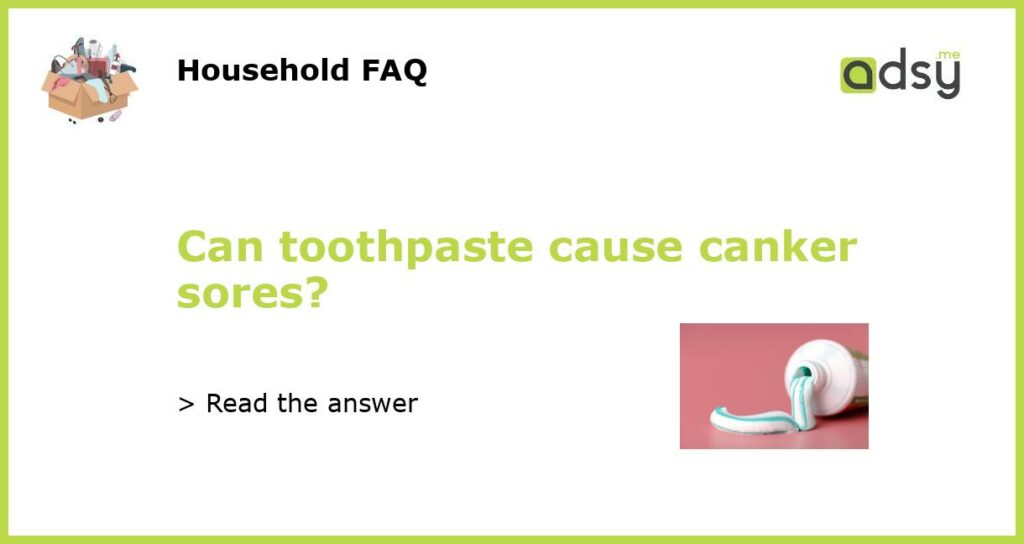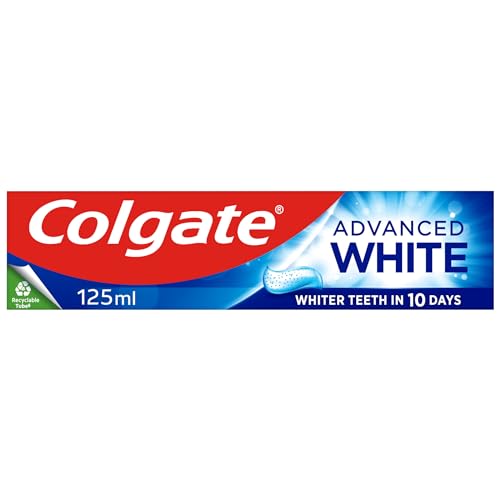Can toothpaste cause canker sores?
Canker sores, also known as mouth ulcers, are painful sores that appear inside the mouth. They can be quite bothersome, making it difficult to eat, drink, and speak comfortably. Many factors can contribute to the development of canker sores, including injury to the mouth, certain foods, and even toothpaste.
The Relationship Between Toothpaste and Canker Sores
Many toothpaste brands contain sodium lauryl sulfate (SLS), a detergent and foaming agent. SLS has been shown to cause irritation in some people, leading to canker sores. The exact mechanism behind this is not fully understood, but it is believed that SLS can disrupt the delicate balance of the mouth, leading to the development of canker sores.
In addition to SLS, toothpaste may contain other ingredients that can potentially cause canker sores in sensitive individuals. These include mint, cinnamon, and other flavoring agents that can irritate the delicate tissues in the mouth. If you find that you develop canker sores after using a particular toothpaste, it may be worth considering switching to a different brand or a toothpaste specifically formulated for sensitive mouths.
Preventing and Treating Canker Sores
If you are prone to developing canker sores, there are several steps you can take to help prevent their occurrence. First and foremost, practicing good oral hygiene is essential. Brush your teeth gently with a soft-bristled toothbrush and avoid aggressive brushing that can injure the delicate tissues in your mouth. Using a toothpaste without SLS or other potentially irritating ingredients may also help reduce the risk of canker sores.
Avoiding certain foods and substances that can trigger canker sores is also important. Spicy and acidic foods, as well as tobacco and alcohol, are known to increase the risk of canker sore development. If you notice that certain foods or substances consistently trigger canker sores for you, try to limit or avoid them to reduce your risk.
If you do develop a canker sore, there are several over-the-counter treatments available to help alleviate the pain and promote healing. These include topical ointments and gels that can be applied directly to the sore. Additionally, rinsing your mouth with a saltwater solution or a mouthwash specifically formulated for canker sores may help reduce inflammation and speed up the healing process.
When to Seek Medical Attention
In most cases, canker sores will heal on their own within one to two weeks. However, there are some instances where it is important to seek medical attention. If you experience severe pain, difficulty eating or drinking, or if the sore does not improve after two weeks, it is advisable to see a dentist or doctor. They can provide further evaluation and recommend appropriate treatment options.
It is worth noting that canker sores are different from cold sores, which are caused by the herpes simplex virus. Cold sores are typically characterized by fluid-filled blisters that develop on the lips or around the mouth. They require different treatment approaches, so it is important to consult with a healthcare professional for an accurate diagnosis and treatment plan.
While toothpaste may not be the primary cause of canker sores for most people, it can contribute to their development in some individuals. If you are prone to canker sores or have noticed a correlation between your toothpaste and the occurrence of canker sores, consider switching to a toothpaste without potentially irritating ingredients. Practicing good oral hygiene and avoiding trigger foods and substances can also help prevent canker sores. If you do develop a canker sore, over-the-counter treatments are available to provide relief and promote healing. Seek medical attention if the sore does not improve or if you experience severe symptoms.






